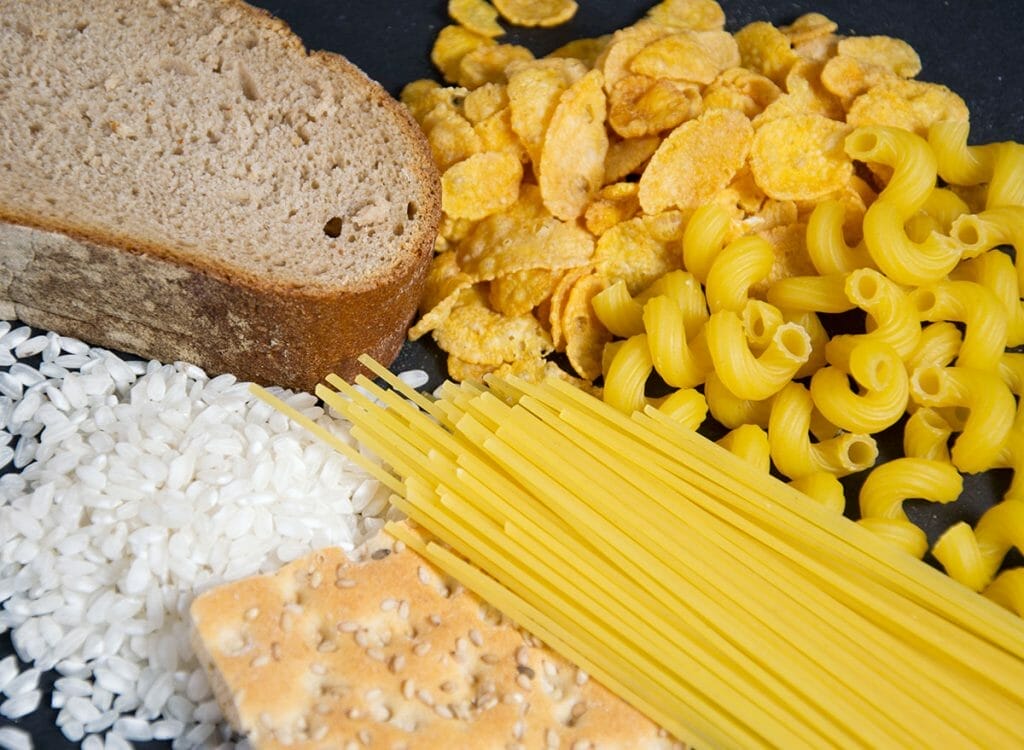4 Bad Mistakes to Avoid When On a Plant-Based Diet
A plant-based diet consists mostly or entirely of foods derived from plants. This includes vegetables, fruits, whole grains, legumes, beans, nuts, and seeds, with little to no animal products. While it doesn’t necessarily mean abstaining from meat and dairy products entirely, it does entail proportionately consuming more foods that come from plant sources. The challenge for most people arises during the transition into a plant-based diet. To make the transition as smooth and seamless as possible, here are 4 common mistakes from Core Collective and curated by Tropika Club you should take note of and avoid when transitioning to a plant-based diet.
Table of contents
- No Time to Read? Here’s a Snappy Summary of This Article
- 1. Skipping the transition period
- 2. Eliminating meat without a proper substitute
- 3. Being too dependent on processed food
- 4. Not meeting nutritional needs and overdosing on carbs
- Conclusion
- Frequently Asked Questions (FAQ)
- Meanwhile, Check Out Tropika Club’s Ecosystem of Websites
No Time to Read? Here’s a Snappy Summary of This Article
- Skipping the transition period: This can make the change too drastic and difficult, and cause digestive issues, cravings, and nutrient deficiencies. The blog suggests making gradual changes and allowing your body and taste buds to adapt.
- Eliminating meat without a proper substitute: This can lead to protein, iron, zinc, and other nutrient deficiencies, and affect your health and energy levels. The blog recommends replacing meat with plant-based sources of these nutrients, such as beans, lentils, tofu, tempeh, nuts, seeds, and fortified foods.
- Being too dependent on processed food: This can result in excess intake of salt, sugar, fat, additives, and preservatives, which can harm your health and weight. The blog advises basing your diet on whole foods, such as fruits, vegetables, grains, legumes, nuts, and seeds.
- Not meeting nutritional needs and overdosing on carbs: This can cause vitamin B12, calcium, iodine, omega-3 fatty acids, and other nutrient deficiencies, as well as blood sugar spikes and hunger. The blog suggests taking supplements or eating fortified foods to meet your nutritional needs, and choosing complex carbs over refined carbs.

1. Skipping the transition period
The transition into a plant-based diet can be an overwhelming period for many, where they feel hungry, irritable and exhausted. However, it’s a crucial stepping stone to achieve a sustainable plant-based diet, as it ensures you are eating healthily and not falling into a period of fatigue as you keep up with your new eating habits.
The key to this period is starting slow and allowing your body to adjust to the introduction of a new and unfamiliar diet. Thus, starting with meals you have always enjoyed, which also happens to be plant-based friendly, is a good way to start!

2. Eliminating meat without a proper substitute
Adopting a plant-based diet does not mean strict abstinence from meat, it just means that your diet consists primarily of plant-sourced foods. For a plant-based dish or meal, meat is considered more of a garnish than the main ingredient. Another question of concern to be raised is if your diet is meeting your protein consumption needs. Substituting the usual meat proteins with plant-based proteins is essential for many health and wellness attributes such as a healthy appetite and immune system. Including protein-rich food like tofu, chickpeas and legumes into your diet can help to nourish the body too.
Read Also:

3. Being too dependent on processed food
While processed foods are typically associated with fast food, chips, and sweets, it can also include bread, jarred sauces, and frozen meals that many consider as staples. Though convenient, these processed foods are loaded with sugars, salt, or fats. Additives or contaminants formed during food processing may have negative effects on metabolism and the cardiovascular system.
Individuals who consume processed food for most meals may have heightened risks of heart disease, stroke, and premature death. The most heart-healthy diet is rich in whole foods, particularly plant-based foods like fruits and vegetables, legumes, whole grains, and nuts. There are healthy packaged options such as fresh frozen vegetables and dried nuts to make such diets more affordable and convenient. When transitioning into your new diet, it’s recommended to base most of your meals around plant-based foods and vegetables, while cutting down on processed ones.

4. Not meeting nutritional needs and overdosing on carbs
All carbs are not created equal, and overeating carbohydrates goes hand-in-hand with overconsuming sugar. Most people are not overconsuming fruits and vegetables or even whole grains, but rather processed and enriched carbs, including foods with added sugar.
While switching to a low-carb diet is not essential to losing weight or building muscle, make sure you’re eating quality carbohydrates, preferably whole grains, vegetables, and anything with a lot of fibre.
Conclusion
A plant-based diet can be a great way to improve your health and well-being while also helping the planet and the animals. But it’s not as simple as just cutting out meat and dairy from your plate. You need to pay attention to your nutrition, your calories, and your enjoyment of food. By avoiding these four bad mistakes, you can make sure that your plant-based diet is balanced, satisfying, and sustainable for the long term.

Frequently Asked Questions (FAQ)
Q: What are some plant-based food brands available in Singapore?
A: There are many plant-based food brands that offer products like meat alternatives, dairy alternatives, snacks, and ready meals. Some examples are Quorn, Tindle, Karana, Omnimeat, Altn, Mohjo, Osomefood, and Boxgreen. You can find these products in supermarkets, online platforms, or restaurants that serve plant-based dishes.
Q: How can I get enough vitamin B12 on a plant-based diet?
A: Vitamin B12 is a nutrient that is only found naturally in animal products, so you need to supplement it if you are on a plant-based diet. You can take a vitamin B12 supplement or eat foods that are fortified with it, such as cereals, plant milks, or nutritional yeast. You can also check your vitamin B12 levels regularly with a blood test to make sure you are not deficient.
Q: How can I eat more calories on a plant-based diet?
A: Calories are the units of energy that your body needs to function and perform activities. If you are not eating enough calories on a plant-based diet, you might feel tired, hungry, or lose weight unintentionally. To eat more calories, you need to choose wholesome plant-based foods that provide carbohydrates, fats, and protein. Some examples are whole grains, starchy vegetables, nuts, seeds, avocados, coconut, tofu, tempeh, and beans. You can also snack on healthy foods like fruits, nuts, or granola bars when you feel hungry.
Q: How can I enjoy my food on a plant-based diet?
A: One of the best ways to enjoy your food on a plant-based diet is to try new recipes, experiment with different cuisines and flavors, add sauces and spices, and indulge in treats once in a while. You can also explore the vegan-friendly dining options in Singapore that offer a variety of dishes from noodles to burgers to sushi. You can check out our guide to modern plant-based living in Singapore for some recommendations.
Q: What are the benefits of a plant-based diet for my health and the environment?
A: A plant-based diet can have many benefits for your health and the environment. According to research, a plant-based diet can lower your risk of chronic diseases, certain cancers, depression, and frailty in older age. It can also help you maintain a healthy weight and improve your mood and energy levels. A plant-based diet can also reduce your environmental impact by lowering your greenhouse gas emissions and your water, land, and energy use. By eating more plants and less animals, you can also help prevent animal suffering and promote animal welfare.

Have an Article to Suggest?
Tropika Club is always looking for new and exciting content to feature in their magazine and they value the input of our readers. If you have any noteworthy content or articles that you believe would be a great addition to Tropika Club’s magazine, we are open to suggestions and encourage you to reach out to us via email at [email protected]. By doing so, Tropika Club values your expertise and knowledge in the matter and appreciates your willingness to help. We will review your recommendations and update our list accordingly
Meanwhile, Check Out Tropika Club’s Ecosystem of Websites

Tropika Club Magazine – Tropika Club Magazine is a Singapore-based publication that features articles on a wide range of topics with a focus on local businesses and content for the region. The magazine emphasizes supporting local businesses through its #SupportLocal initiative, which includes coverage of everything from neighborhood hawker stalls to aesthetic clinics in town. In addition to highlighting local businesses, Tropika Club Magazine also covers a variety of local content, including beauty, lifestyle, places, eats, and what’s on in Singapore and the Asia Pacific region.
Tropika Club Deals – Tropika Club Deals is a leading online deals and voucher shopping site in Singapore, offering amazing discounts on beauty, wellness, and fitness products and services. It’s the perfect platform for customers who want to discover the best deals without having to commit to a specific appointment date and time. These deals are available at major beauty stores, facial salons, hair salons, and other brands in Singapore, with no minimum spend required. Choose from guaranteed discounted deals in the categories of hairstyling, hair removal, facial & aesthetics, body slimming, brows & lashes, nails & makeup, massage & spa or fitness & wellness. Tropika Club Deals is also ideal for customers who want to buy vouchers as gifts or to use for the future. So whether you’re looking to save money on your next haircut or want to treat yourself to a relaxing massage, Tropika Club Deals has got you covered with the best voucher and coupon deals in Singapore!




